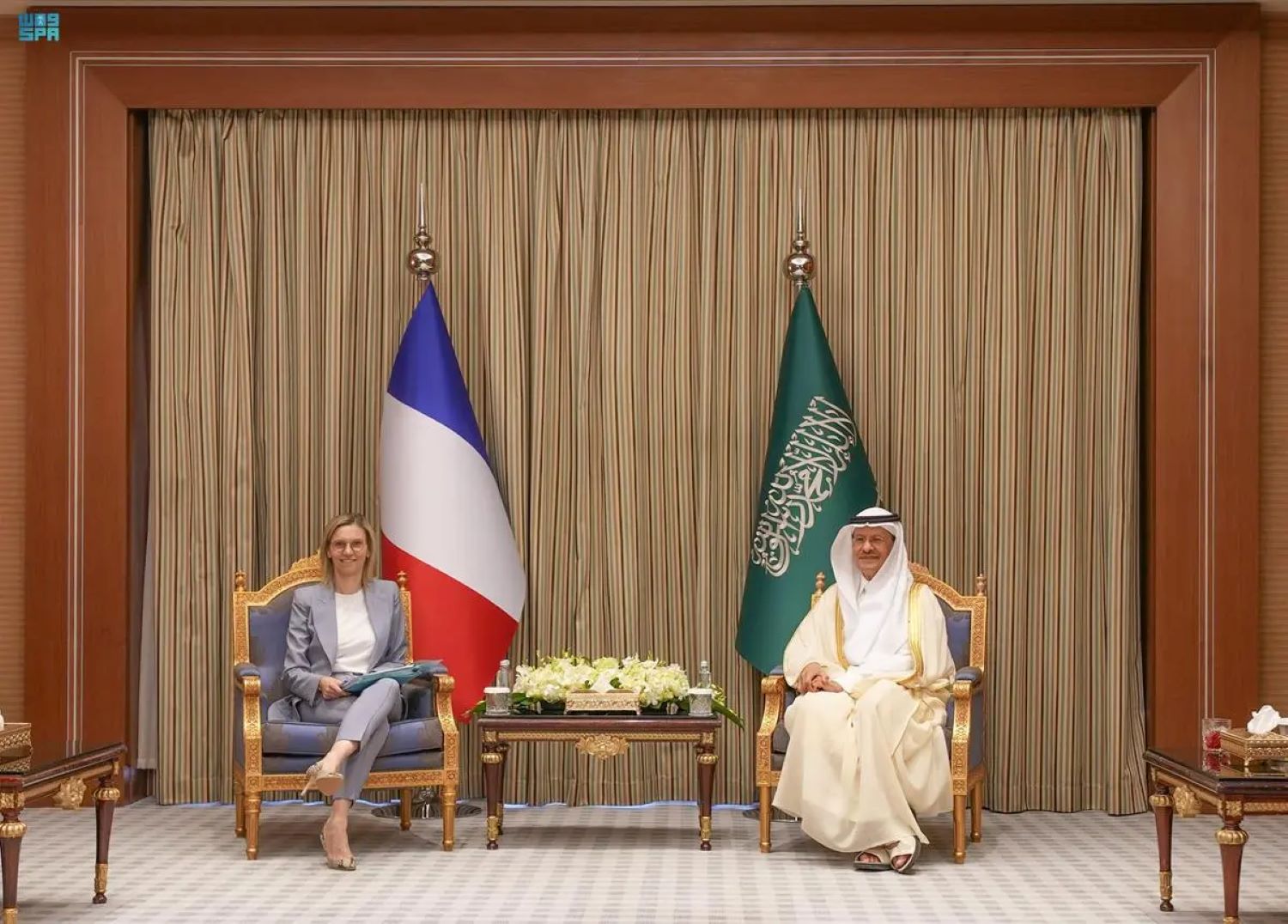RIYADH, SAUDI ARABIA – Prince Abdulaziz bin Salman and Agnes Pannier-Runacher, Minister for Energy Transition of the French Republic met and issued a joint communiqué:
The Government of the Kingdom of Saudi Arabia and the Government of the French Republic acknowledge that energy is one of the main pillars of their mutual long-term partnership, and the two countries affirmed their commitments by signing a Memorandum of Understanding to cooperate in the Field of Energy on February 2, 2023.
Both countries acknowledge the importance of advancing the implementation of the United Nations Framework on Climate Change (UNFCCC) and the Paris Agreement in accordance with the principles, objectives and goals defined therein, including pursuing efforts to limit the temperature increase to 1.5°C.
Addressing climate change and promoting secure, reliable, affordable and sustainable supplies of energy are shared strategic priorities of Saudi Arabia and France.
Moreover, the two countries recognize that clean hydrogen is an essential fuel to reach the shared objective of promoting a sustainable economic development while mitigating the impact of climate change.
Additionally, both countries agreed to enhance cooperation in the field of electricity, and exchange experiences in the field of electricity generation from renewable energy resources, grid interconnection projects as well as encouraging the participation of private sectors in power sector projects including generation, transmission, distribution, storage and network automation technologies.
Both countries have agreed to engage in joint efforts to enhance energy efficiency, and to enhance their cooperation in the field of nuclear energy in a peaceful and safe framework, the management of radioactive waste and the nuclear applications, and the development of human capabilities.
Both countries agreed to cooperate on advancing climate technologies and solutions including carbon capture utilization and storage for hard-to-abate sectors such as cement, aviation, marine, and petrochemicals, among others.
The Kingdom aims to become the leading exporter of hydrogen and electricity produced from low emission resources globally, capitalizing on its ability to produce hydrogen and electricity produced from low emission resources at competitive cost.
The Kingdom has the necessary resources of renewable energy, natural gas and carbon sinks, to export hydrogen in addition to its strategic location with proximity to major global demand centres.
The French strategy for the development of decarbonized hydrogen aims at having a significant contribution to the decarbonization of industry and transport.
The strategy includes a public investment program, France 2030, aimed at accelerating investment and innovative solutions in sectors of French excellence to decarbonize industry and to develop renewable energy with the goal to increase the renewable power installed capacity up to 100GW by 2050, with more than 40 GW coming from offshore wind farms.
France and Saudi Arabia have placed hydrogen and electricity produced from low emission and renewable resources at the core of their respective energy transition.
Both countries decided to join forces in the search for innovative solutions to produce hydrogen in the most effective and competitive way, and to develop its use in industry, mobility, power generation, buildings and other relevant applications.
To this end, France and Saudi Arabia agreed on a hydrogen cooperation and electricity produced from renewable resources roadmap focusing on three pillars:
• Technology development: Cooperation will advance hydrogen and electricity produced from renewable technology deployment from production, transportation and conversion at demand centres;
• Business co-operation: the private sector has a critical role to play, Saudi – France cooperation welcomes joint efforts between Saudi and French companies to partner in the entire energy supply chain to unlock business and hydrogen trade;
• Policies and regulation: the roadmap will further promote the development of the hydrogen industry through a mutual recognition of certification framework including emission life cycle assessment from all possible sources necessary for consistency in international trade.
Both countries will work to enhance their cooperation in developing and sustaining supply chains for the energy sectors and to enable cooperation between companies to maximize the utilization of local resources in both countries, which contributes to achieving flexibility and effectiveness of energy supplies.
The parties support the creation of a “French-Saudi Task-Force” aiming to deliver desired outcomes from cooperation in hydrogen and other domains.

